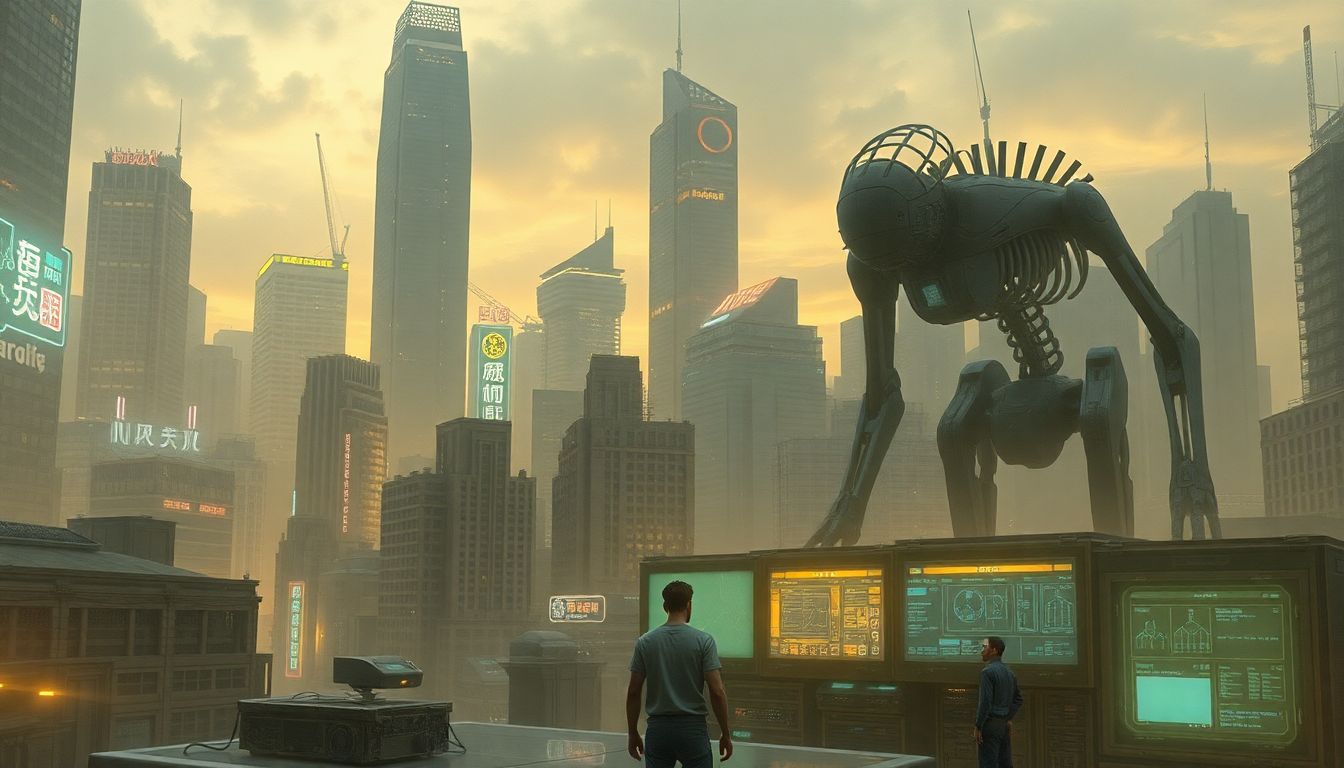Imagine a world where robots handle most of our work. It sounds like science fiction, but it might be closer than we think. Artificial intelligence (AI) and robotics are advancing rapidly, raising the question: Will these technologies replace our jobs, or will they simply change how we work? Let’s explore the risks and opportunities of this transition.
Automation: The Goliath of Labor Market Disruptors
Automation occurs when machines take over tasks traditionally performed by humans. It uses AI and robotics to streamline processes and increase efficiency. While automation isn’t new—think of the Industrial Revolution—today’s advancements are accelerating. From factories to customer service, automation is reshaping industries.
Trends in Automation Across Industries
Automation is everywhere. Robots assemble products in factories, chatbots handle customer inquiries, and AI assists doctors in diagnosing diseases. Autonomous vehicles are transforming transportation. Companies adopt automation to save costs and improve efficiency, but this shift comes with challenges.
Data on Job Displacement and Creation
Automation may displace many jobs, particularly in sectors like manufacturing. However, it also creates new opportunities in fields like AI development and robotics. The challenge lies in retraining workers to adapt to these new roles. Upskilling is essential to keep pace with technological advancements.
What Jobs Are Most at Risk for Automation?
Some jobs are more vulnerable to automation than others. Typically, these involve repetitive, predictable tasks. The more routine a job, the more likely it is to be automated. But are “safe” jobs truly safe?
High-Risk Job Categories
Jobs like data entry clerks, assembly line workers, and truck drivers are at high risk. These roles involve repetitive tasks that AI or robots can easily perform. While these jobs may not disappear overnight, they will likely evolve, requiring new skills from workers.
How White-Collar Jobs Will Be Affected
Automation isn’t limited to blue-collar jobs. AI can now handle tasks like legal research, financial analysis, and content creation. White-collar workers must adapt by acquiring new skills and viewing AI as a tool rather than a threat.
Jobs of the Future: Opportunities in the AI Era
While some jobs will disappear, AI and robotics will create new opportunities. Emerging industries and roles we can’t yet imagine will shape the future of work. Preparing for these changes is crucial.
Jobs That AI and Robotics Will Create
New roles will emerge, such as AI trainers, robotics engineers, and data scientists. These positions require specialized education and skills, highlighting the importance of continuous learning and adaptation.
The Role of Human Skills: Creativity, Critical Thinking, and Emotional Intelligence
Certain skills are uniquely human and difficult for robots to replicate. Creativity, critical thinking, emotional intelligence, and communication will remain invaluable. Jobs requiring these skills, such as artists, therapists, and strategists, are less likely to be automated.
How Workers and Businesses Can Prepare for the Future
Adapting to the future of work requires proactive measures. Workers must reskill and upskill, while businesses and governments must support this transition.
Reskilling and Upskilling
Workers should seek out training programs to acquire new skills. Identifying in-demand skills and staying current with industry trends is essential for remaining competitive in the job market.
The Role of Education and Government
Schools and governments play a critical role in preparing workers for the future. This includes offering retraining programs, investing in lifelong learning initiatives, and strengthening social safety nets to support those affected by automation.
The Societal and Ethical Impact of Automation
Automation raises important societal and ethical questions. How do we address job displacement and income inequality? What policies can ensure a fair transition?
Income Inequality and Social Safety Nets
Universal basic income (UBI) is one proposed solution to mitigate the impact of job displacement. Strengthening social safety nets can also provide support for those affected by automation. Governments must address these challenges to ensure a just transition.
The Future of Work: A New Social Contract?
As automation reshapes the workforce, we may need to rethink our relationship with work. In an automated future, work may no longer define our lives. Finding new ways to derive purpose and meaning will be essential.
Conclusion
Will robots and AI take our jobs? The answer is complex. While automation will eliminate some jobs, it will also create new opportunities. The key is preparation—reskilling, adapting, and advocating for policies that ensure a fair transition. Embrace lifelong learning and work toward a future where technology enhances, rather than replaces, human potential.

